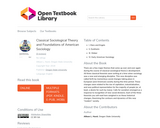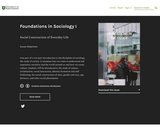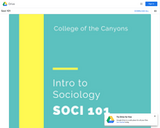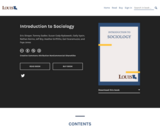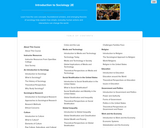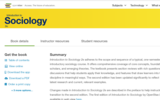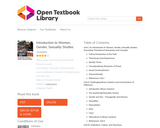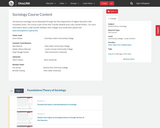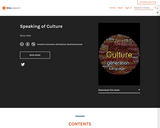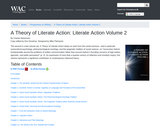This text was envisioned as an essentials text, providing coverage of the main areas of study reviewed in most introduction to sociology classes.
Table of Contents:
Chapter 1: Sociological Research in the Service of Society
1.1 The Sociological Perspective
1.2 Understanding Society
1.3 Theoretical Perspectives in Sociology
1.4 Sociology as a Social Science
1.5 Stages in the Sociological Research Process
1.6 Research Design in Sociology
1.7 Ethical Issues in Sociological Research
1.8 Sociological Research in the Service of Society
1.9 End-of-Chapter Material
Chapter 2: Culture
Social Issues in the News
2.1 Culture and the Sociological Perspective
2.2 The Elements of Culture
2.3 Cultural Diversity
2.4 End-of-Chapter Material
Chapter 3: Socialization
Social Issues in the News
3.1 The Importance of Socialization
3.2 Explaining Socialization
3.3 Agents of Socialization
3.4 Socialization Through the Life Course
3.5 Resocialization and Total Institutions
3.6 Socialization Practices and Improving Society
3.7 End-of-Chapter Material
Chapter 4: Social Structure and Social Interaction
Social Issues in the News
4.1 Social Structure: The Building Blocks of Social Life
4.2 The Development of Modern Society
4.3 Social Interaction in Everyday Life
4.4 End-of-Chapter Material
Chapter 5: Groups and Organizations
Social Issues in the News
5.1 Social Groups
5.2 Group Dynamics and Behavior
5.3 End-of-Chapter Material
Chapter 6: Deviance, Crime, and Social Control
Social Issues in the News
6.1 Social Control and the Relativity of Deviance
6.2 Explaining Deviance
6.3 Crime and Criminals
6.4 The Get-Tough Approach: Boon or Bust?
6.5 End-of-Chapter Material
Chapter 7: Social Stratification
Social Issues in the News
7.1 Systems of Stratification
7.2 Explaining Stratification
7.3 Social Class in the United States
7.4 Economic Inequality and Poverty in the United States
7.5 End-of-Chapter Material
Chapter 8: Global Stratification and Demography
Social Issues in the News
8.1 The Nature and Extent of Global Stratification
8.2 The Impact of Global Poverty
8.3 Explaining Global Stratification
8.4 Population
8.5 Population Growth and Decline
8.6 Urbanization
8.7 End-of-Chapter Material
Chapter 9: Race and Ethnicity
Social Issues in the News
9.1 Racial and Ethnic Relations
9.2 The Meaning of Race, Ethnicity and Minority Status
9.3 Stereotypes and Prejudice
9.4 Discrimination
9.5 Patterns of Intergroup Relations
9.6 Racial and Ethnic Inequality in the United States
9.7 Race and Ethnicity in the 21st Century
9.8 End-of-Chapter Material
Chapter 10: Gender and Gender Inequality
Social Issues in the News
10.1 Understanding Sex and Gender
10.2 Feminism and Sexism
10.3 Gender Inequality
10.4 Violence Against Women: Rape and Pornography
10.5 The Benefits and Costs of Being Male
10.6 End-of-Chapter Material
Chapter 11: Politics, Government, and Economies
Social Issues in the News
11.1 Power and Authority
11.2 Types of Political Systems
11.3 Theories of Power and Society
11.4 Politics in the United States
11.5 War and Terrorism
11.6 Economic Development in Historical Perspective
11.7 Types of Economic Systems
11.8 End-of-Chapter Material
Chapter 12: Marriage and Families
Social Issues in the News
12.1 Families in Cross-Cultural and Historical Perspectives
12.2 Sociological Perspectives on the Family
12.3 Family Patterns in the United States Today
12.4 Changes and Issues Affecting American Families
12.5 Family Violence
12.6 End-of-Chapter Material
Chapter 13: Education and Religion
Social Issues in the News
13.1 Brief History of Education in the United States
13.2 Sociological Perspectives on Education
13.3 Education in the United States
13.4 Issues and Problems in Education
13.5 Religion
13.6 Religion as a Social Institution
13.7 Religion in Historical and Cross-Cultural Perspective
13.8 Sociological Perspectives on Religion
13.9 Types of Religious Organizations
13.10 Religion in the United States
13.11 Trends in Religious Belief and Activity
13.12 End-of-Chapter Material


